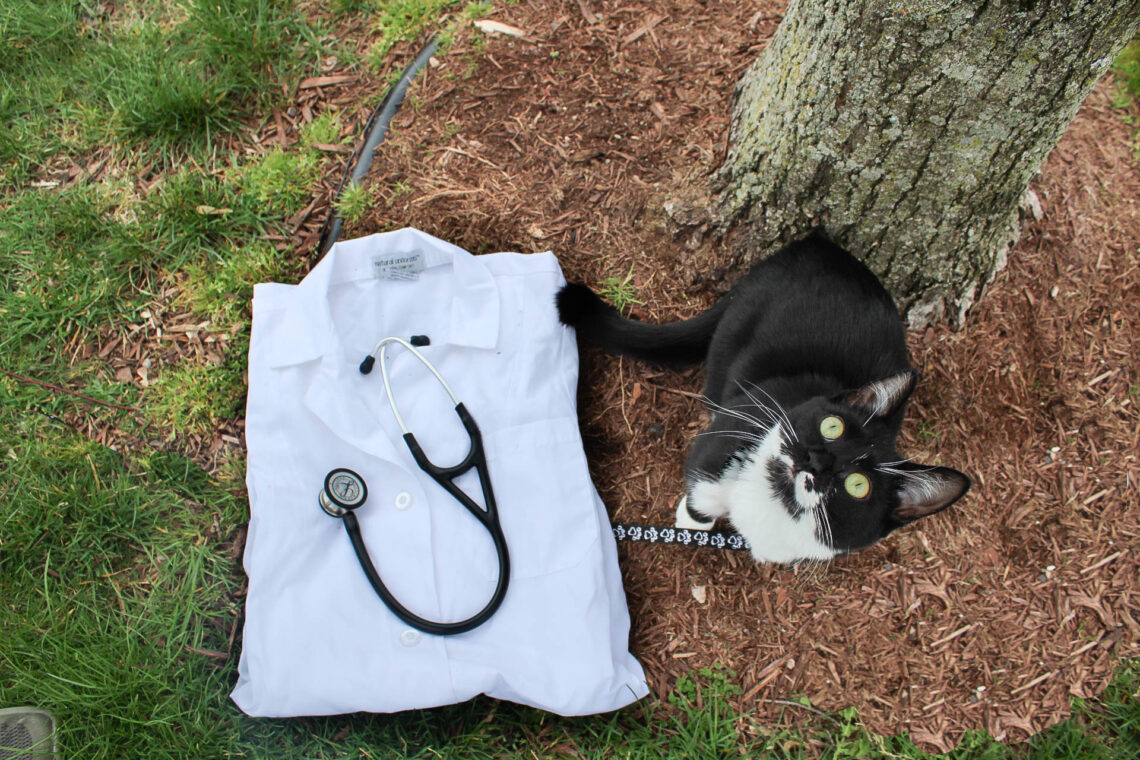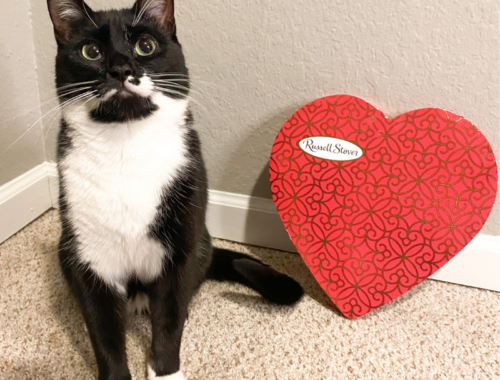
HOW TO PICK THE RIGHT VETERINARIAN FOR YOU
Having a good relationship with your veterinarian is essential for caring for your cat’s health. You want to be able to trust your vet and feel comfortable bringing your cat there. From having worked in the veterinary field, here are a few things that can help you build a trusting relationship with your cat’s vet. But first things first, you need to find a veterinarian!
Picking a Vet:
Think about you and your pets needs when trying to narrow down on choosing a veterinarian. Here are a few things to consider:
1. Location
a. Do you prefer to have a vet close to your home or your work?
b. How far are you willing to travel if you have multiple options near you?
2. Hours
a. Do you need to have a vet that is open 24/7? Or maybe you just need a place that is open earlier or later so you can make appointments around your work schedule. What about weekend hours?
3. Doctor specialties
a. Do you need a mixed animal practice if you have exotic pets and want to take them all to the same place?
b. Does your pet need a specialist for care that cannot be done by a general practitioner? (Specific diagnostics, surgeries, treatments, etc.)
4. Cost
a. There are ways to alleviate the cost of veterinary bills, such as Care Credit and pet insurance, but if you have multiple options for veterinary care in your area, you can compare prices for the services needed.
5. Appointments
a. Are drop-off appointments something you look for – where you can drop your cat off for a few hours and come back to pick them up?
b. Do you prefer a place where walk-in appointments are available?
6. Recommendations
a. Do you have any friends or family that love their veterinarian and can recommend one to you? It is always great to go to a vet that people you know already trust!
Establishing a Relationship:
1. Be friendly
a. This may sound obvious but being nice truly goes a long way. Not just to the veterinarian, but the whole staff.
2. Get to know the staff
a. Talk to them, ask how their day is, ask if they have any pets of their own, etc. Engaging in conversation with the receptionists and veterinary nurses will help them remember you and your cat when you come for future appointments.
3. Be prepared
a. Call ahead to make your appointment (unless you are at an emergency facility). A veterinarian’s day can get very busy, and it may be hard to fit in people who do not have an appointment, so keep that in mind.
b. Write down any questions or concerns you have about your cat that you want to bring up during the visit. When you are there, it is easy to forget some of the concerns you wanted to bring up. If you have them written down, you will avoid having to call back, or even bring your cat back, when you remember.
4. Be honest
a. Do not hide or omit information from your veterinarian. Your vet is not there to judge you, and they cannot make an accurate diagnosis to help your cat if you are excluding important information from them.
b. Timing is very important in veterinary medicine. If your pet has had an issue for a couple of days versus a couple of weeks, that could change the diseases your vet is thinking about and what tests they want to run.
c. If you have cost restraints, be up front. Veterinarians will work with your budget if they know it ahead of time. You can ask your veterinarian for an estimate of the visit’s cost and they can run through it with you. From there, you can decide together what the best course of action is and the necessities for your cat that day. Veterinarians will offer the gold standard for diagnostic tests and treatment first (in best interest of your pet) and can work with your budget from there.
5. Ask questions
a. If you do not understand something or want more clarification, do not be afraid to ask. It shows you care and are making sure you are getting the best information possible to help your cat at home. The staff should always be happy to address any questions or concerns you have.
Maintaining a Relationship:
1. Always take your pets for their yearly appointments
a. It is important for them to stay up to date on their shots and preventatives, but also to have a general check-up, just like people. Especially when they are older, many diseases can be caught early through a routine bloodwork check-up!
2. Call back the next day
a. Sometimes, when you bring your cat in for a sick visit, the veterinarian will ask you to give the hospital a call the next day and give an update. Many people do not take advantage of this, but it is a great way to help your vet remember your pet in the future. Plus, they will be happy to hear if your pet is doing better. And if your pet is not doing better, they need to know as well. If there should have been progress made by that time, something else may be wrong and they may need you to come back in.
3. Be appreciative
a. Veterinarians go through extensive schooling and take on loads of student debt. They really are in it for the love of helping animals. Thanking them and the rest of the staff puts a smile on their face every time!
4. Recommend your vet to friends and family
a. Not only is this helping others in need of finding a good vet, but many places will offer referral programs too. If someone comes in saying they were referred by another patient, you could get a perk. Keep in mind, not every veterinary office does this, so you will have to see your vet’s policy on it. But even if they do not do this, they will still appreciate your kind words and you are helping another pet find great care!
If you cat is sick, it can be quite scary to not know what is going on. Having a veterinarian that you can go to and really trust to provide the best care possible for your pet can alleviate a lot of that stress. We hope this blog post was helpful in giving you some ideas of how to strengthen the relationship you have with your current veterinarian!

HOW TO HARNESS TRAIN YOUR CAT

Meet Noodle
You May Also Like

How To Have A Safe Valentine’s Day With Cats
February 12, 2021
How to pick the right harness for your cat
May 15, 2020

One Comment
Marie
Great Information!
Perfect timing since I’m looking for a new vet for my cat. I’ll will keep your suggestions in mind when building a relationship with my new Vet and staff. Thanks